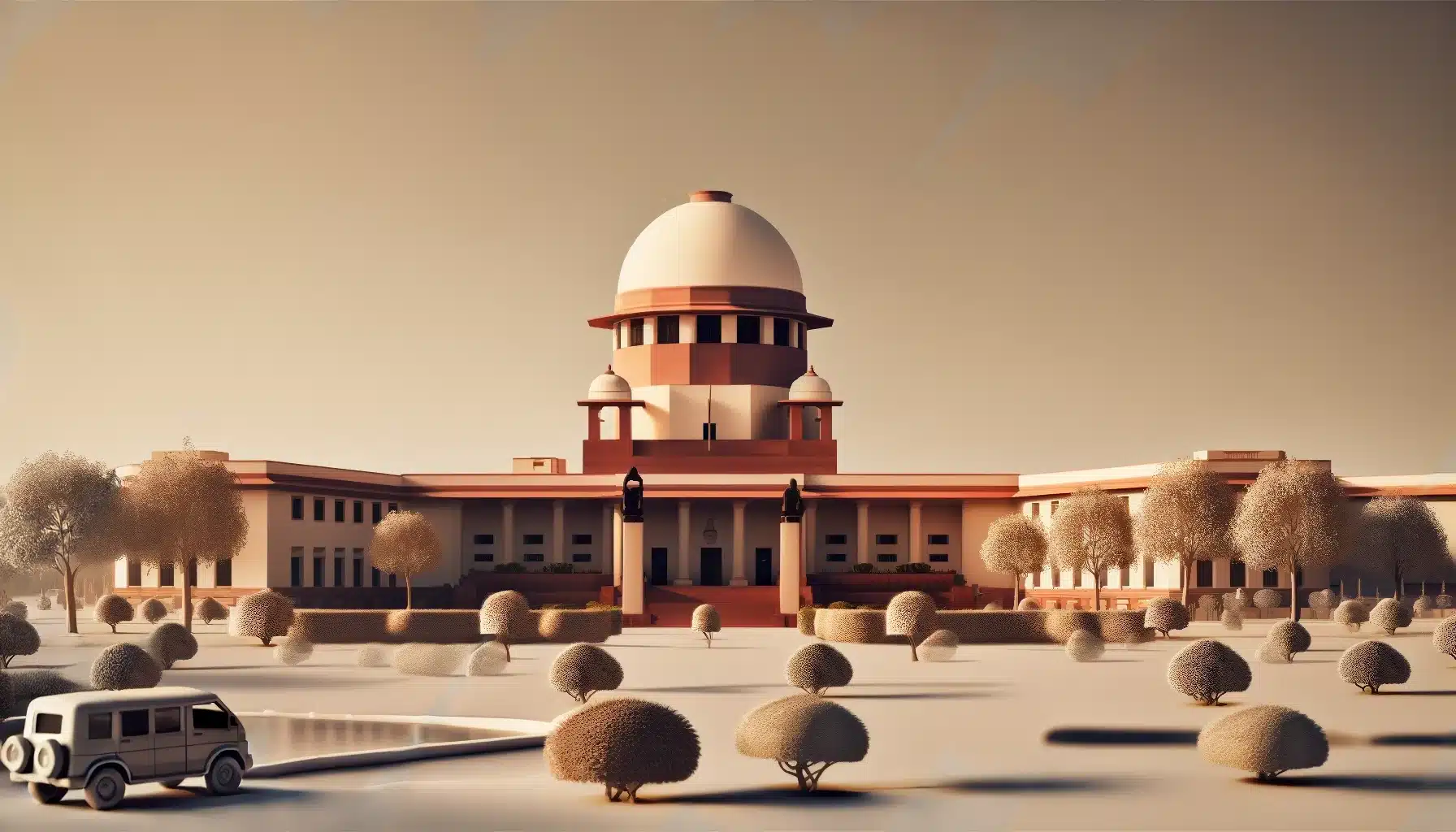In a landmark decision, the Supreme Court of India ruled that Section 479 of the Bharatiya Nagarik Suraksha Sanhita (BNSS) will apply retrospectively to all undertrials across the country. This ruling will allow many undertrials to be released on bail if they have served a portion of their maximum d

LITT Law for lawyers and teams
In a major decision today, August 23, 2024, the Supreme Court of India ruled that Section 479 of the Bharatiya Nagarik Suraksha Sanhita (BNSS), which replaces the Code of Criminal Procedure (CrPC), will apply retrospectively to all undertrials across the country. The decision effectively applies the provision to cases registered before July 1, 2024. This ruling is expected to have a significant impact on the overcrowding of prisons across India, as it will allow many undertrials to be released on bail under certain conditions.
Retrospective Application of Section 479 BNSS:
- Section 479 BNSS establishes that undertrials can be released on bail if they have been detained for a period extending up to one-half of the maximum period of imprisonment prescribed for the offence under the law.
- A key feature of the provision is the proviso which introduces a new relaxation for first-time offenders. According to the proviso, undertrials who are first-time offenders and have never been convicted of any offence in the past will be eligible for bail if they have undergone detention for one-third of the maximum period specified for that offence.
- This relaxation marks a change from the corresponding provision in the CrPC, Section 436A, where the period of detention required for bail was one-half of the maximum imprisonment period.
Implementation of the Provision:
- A Bench comprising Justices Hima Kohli and Sandeep Mehta called on the superintendents of jails across the country to process bail applications for eligible undertrials through the concerned courts once they have completed the required maximum period of detention.
- The Court instructed that these steps be taken as expeditiously as possible, with a preferable timeline of three months for processing.
Backdrop of the Case:
- The Supreme Court was hearing a public interest litigation (PIL) in the case titled Re-Inhuman Conditions In 1382 Prisons v. Director General of Prisons and Correctional Services and Ors., W.P.(C) No. 406/2013, which raised the issue of overcrowding in Indian prisons. The Court had earlier examined the potential of Section 479 BNSS to mitigate this problem.
- During earlier proceedings, Senior Advocate Gaurav Aggarwal argued that proper implementation of this provision could significantly reduce prison overcrowding. Consequently, the Court sought clarification on whether the provision would apply retrospectively.
- Additional Solicitor General (ASG) Aishwarya Bhati, representing the Union of India, had requested more time from the Court to consider the issue, leading to an adjournment. The matter was rescheduled for hearing on August 23, 2024.
Union of India’s Stance:
- During today’s proceedings, ASG Bhati reported, “I am happy to report that Union of India is also of the view that the provision has to be given full effect to… It has to apply to any undertrial who has completed up to one-third of the imprisonment and must be considered accordingly.”
- The Supreme Court, acknowledging this submission, issued its final order.
Final Orders of the Court:
- The Supreme Court directed that Section 479 BNSS be implemented nationwide. The superintendents of jails were ordered to ensure that undertrials who have completed either one-half or one-third of the maximum detention period prescribed for their offence be considered for release on bail.
- The Court mandated that these actions be taken within three months. Additionally, the superintendents are required to submit reports to their department heads within the same timeframe.
- A comprehensive affidavit will be filed by each State and Union Territory regarding compliance with the Court’s order, ensuring that undertrials across the country are given the opportunity for bail as per the new BNSS provisions.
Re-Inhuman Conditions In 1382 Prisons v. Director General of Prisons and Correctional Services and Ors., W.P.(C) No. 406/2013





